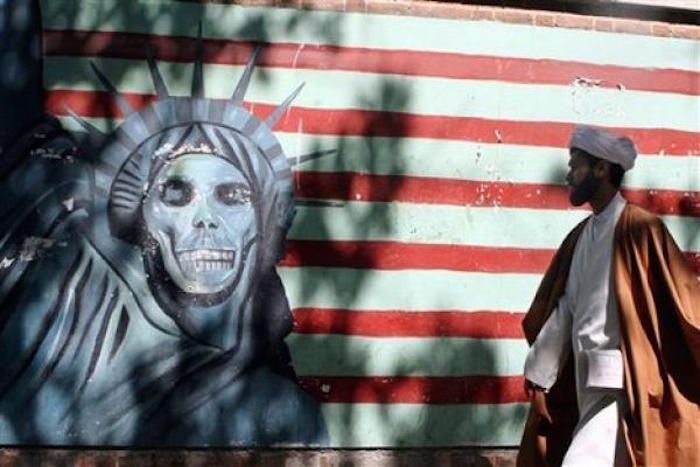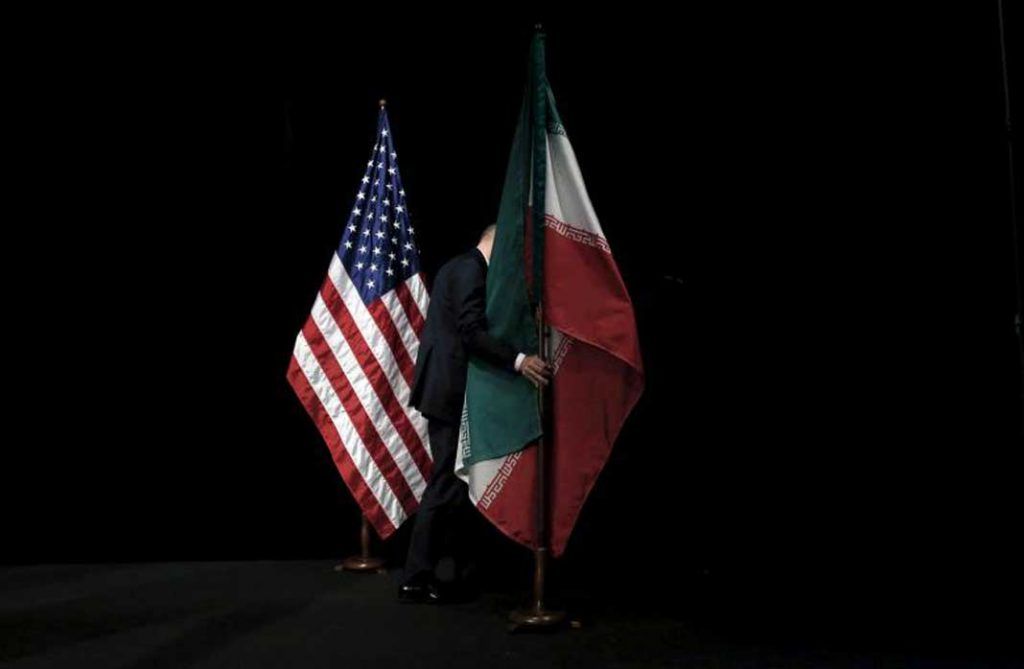February 09, 2017
By Peyman Pejman
As the administration of President Donald J. Trump continues to battle in U.S. court its recent travel ban into the United States from seven Muslim-majority states, including Iran, thousands of visitors who still hold valid visas remain in limbo.
While some have taken advantage of the temporary lull in the situation, thanks to rulings by two Federal Courts, many Iranians and others from different nationalities have opted for the safer approach. Instead of risking detention at U.S. airports, they have chosen not to fly into the United States at all.
The numbers are hard to come by. Despite repeated written requests and voice mail messages, The Department of State’s Public Affairs office, and its Persian spokesperson, Sahar Nowrouzzadeh, did not return requests for comment from Kayhan London. Best estimates are that the U.S. government revoked some 60,000 valid visas for applicants from different countries but it is not known how many people from those seven banned countries still hold valid visas. Neither is it clear how many have taken advantage of the temporary court orders to freeze the ban and flown into the United States.
The travel ban is only part of the Trump administration’s adversarial dealings with Iran in the past weeks and months. Even before he was officially elected, then-candidate Trump made it clear that his approach to Iran would be dramatically different from that of the Obama administration.
Long-time Middle East observers warn that while the tit-for-tat in the worsening bilateral relations could escalate even further, neither side will push the brinkmanship into starting a full-scale war against the other, as some politicians from both countries have indicated might be the case.
The parting shot in the escalation perhaps started with Trump signaling his displeasure with the Iran nuclear deal, which the Obama administration doggedly pursued but one that is not a formal United States treaty and was never voted on by U.S. Congress.


“They [Trump administration] want to make a splash and sound tough. They want to make is clear that they don’t think Obama was tough enough on Iran,” said Barbara Slavin, acting director of the Future of Iran Initiative at the Atlantic Council in Washington, DC.
But the visa ban was a poor way of splashing the displeasure, she argued. “It caused an uproar and made life so difficult for ordinary Iranians; it was extremely counter-productive.”
Iran’s decision to test fire a short-range Mersad missile earlier in February, in response to the Trump administration “putting it on notice” was perhaps a boon to hardliners in Washington, but neither the test nor the Trump administration’s reaction was perhaps unexpected.
“First, the test apparently failed. It was a provocative act. The U.N. resolution does not forbid Iran [from such tests]. They knew the administration was itching and decided to put on a provocation,” said Slavin. “The United States is entitled to put unilateral sanctions on Iran but the Trump administration is not doing a good job of making others follow our lead.” United Nations passed a resolution in support of the Iran nuclear deal and expressed wishes that Iran would freeze missile technology advances.
Other observers believe that Trump’s increased rhetoric against Iran is risky and might backfire.

“Will trump’s tougher line on Iran achieve anything? It is extremely risky for several reasons,” said John Bell, a former Canadian and United Nations diplomat and Director of the Middle East Programme at the Toledo International Centre for Peace in Madrid.
“The Iranians now have a new expectation set regarding the relationship with the region, with the world and with the United States. That expectation set is based on having cut a [nuclear] deal so they are at Level X and all of a sudden Trump has come back to pre-deal attitude. That is not a very healthy scenario and a potentially combustible one,” said Bell.
“I see a more confrontational attitude, some self-destructing dimensions but I don’t see either side going to a full-blown war,” he added.
Why not, given the bombastic nature of some politicians on both sides? For at least two reasons, argued Slavin and Bell.
Bell argues that Trump’s apparent animosity towards Iran is really not just about Iran.
“It is also important to see this confrontational attitude by Trump as part and parcel of his general attitude that he thinks the United States should be more assertive vis a vis China, terrorists, Iran, not yet doing it vis a vis Russia. Part of his approach is that ‘you don’t fool with us, we are a mighty nation. So if you don’t follow the rules the way we understand them, we are going to do something about it.’”
Bell thinks, ultimately, it might boil down to who holds better cards and for whom this confrontation would be more important.
“I think the Iranians are strong enough, on the ground enough, and strategic enough that it will be difficult to move them, to make them shift to a new position. Also, my guess, and it is only a guess, is that other than Israel, the United States has other issues to deal with globally than to worry about Iran. North Korea, China, even Europe, NATO relations,” Bell said.
“Iranians have an advantage over superpowers, just as Israel has an advantage over superpowers in relations to the Palestinians, because they are on the ground and it is their neighborhood. They can act in small ways. Superpowers don’t have that luxury,” he added.
Slavin thinks that Trump’s “picking a fight” with Iran is not all that surprising.
“In the past, the United States has gotten into war of words with Iran and it did not turn out so well; remember Axis of Evil?” she said referring to a phrase coined for former President George W Bush. “With Iran, it’s always been a mixed bag. Iran is always the low-hanging fruit and unfortunately the Iranian government, with continued Death to America [chants] and keeping Iranian dual nationals prisoners is not helping.”
But, ultimately, she said, Iran’s reaction to Trump’s provocations might prove to be key factor.
“Iran has some very qualified diplomats. They are doing their own analysis I would hope that they will be a bit cautious and concentrate on improving the economy and building bridges with Europe and building a wedge between Iran and Europe, as was the case in time of George W Bush. The Trump administration wants to push Iran to renounce the nuclear deal. If the deal collapses, I hope it is not because the Iranian government is doing so.”


